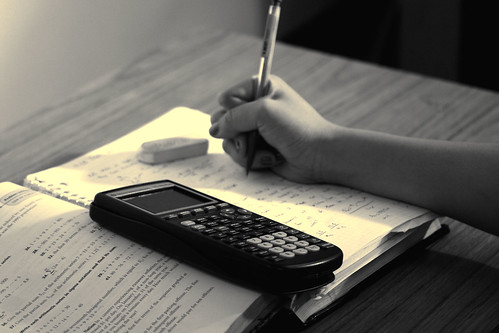Math, English, Science, Spanish – it doesn’t matter what you’re learning. You can effectively study any subject when you follow these surefire study tips.
Develop a Routine
A study routine is one of the most crucial aspects of learning new material. When you have a reliable study routine, you will be continually refreshing and reinforcing your knowledge of the subject. It’s a good idea to keep a study routine even when you’re not actively preparing for a test. Everyone will create a different schedule, but an example might be one hour of studying every other night. You can adjust lengths, times, and frequency to fit your preferences, and you can add additional study time when a test is nearing.
Stay Organized
Organization is also essential for effective studying. You should keep all of your notes and papers for each subject separate from other subjects. Have a designated folder and notebook for each subject or class, and keep everything together in one place. Keep an agenda book or calendar with your study schedule, due dates, and test dates. Once again, different organization systems may work for different people. You might try color-coding your notebooks and folders, or you might use a three-ring binder with dividers. Do whatever works to keep you best organized.
Take Good Notes
The quality of the notes you take will directly relate to the quality of your studying. While you’re in class, pay attention and write down the important things the teacher is saying. If you’re unsure of what is most important, identify the themes of what you’re currently learning and try to keep track of the most significant related details. Keep your notes organized by date or by topic. If you need to, go back through your notes and re-write them in a way that’s easier to understand. While reading, keep notes or highlight key information.
Pick a Good Spot
You should always study in a place that is free from distractions. It’s a good idea to study somewhere quiet where you won’t be disturbed and can concentrate. Also, have all necessary supplies with you before you start so you won’t have to stop to locate anything.
Space Out Sessions
It is more effective to study for shorter periods of time more frequently than to try and cram all at once. It’s a good idea to space out your study sessions and learn gradually over a few weeks. Don’t leave all your studying to be completed in just one or two days.
Take Breaks
As you study, you should take frequent breaks. For every one hour you study, you should take on ten to fifteen minute break. Also make sure you stay hydrated, and don’t study on an empty stomach.
Don’t Stress
Your attitude is so important to the quality of your studying. If you’re stressed out, worried, or distracted, you won’t be able to concentrate or absorb as much knowledge as when you’re more relaxed. Giving yourself enough time to study and doing it in a quiet place will greatly help reduce stress.
About The Author:
Mark Weatherford is a high school English teacher and father who likes to help students refine their study habits. He loves to write and often covers topics ranging from parenting tips to advice on writing college essays.
Photo Credit: scui3asteveo


